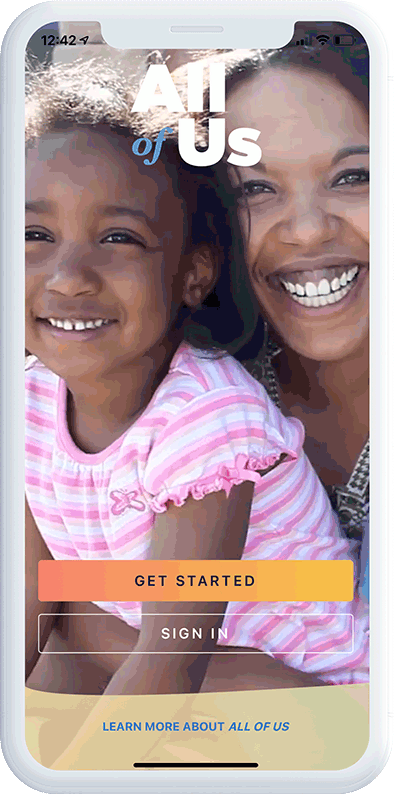The All of Us Research Program is planning to start sharing health-related DNA results with participants in the near future. A key player in this process is a trained professional: a genetic counselor.
Genetic counselors are part genetics expert and part counselor. They explain DNA results and disease risk. They also provide support around the personal questions that may arise when you learn about your DNA
All of Us participants who choose to receive DNA results can meet with a genetic counselor to discuss them. This includes the Hereditary Disease Risk report and the Medicine and Your DNA report. Genetic counseling appointments are always free for participants. They are available with English- or Spanish-speaking genetic counselors. And interpreters are available for more than 200 languages.
Many studies offer genetic counselors to go over results with participants. But All of Us also offers a free support center. Participants and health care providers might have questions outside of an appointment. They can call the support center to talk to support staff trained in genetics as well as genetic counselors.
How Does it Work?
All of Us genetic counselors will talk with participants on the phone. They will walk the participant through the report to make sure they understand the results. They will answer the participants’ questions. And they will help the participant talk through their feelings about their results.
"It can sometimes seem overwhelming. How do you know exactly what to do once you have that information?" says Emily Kelley, M.S., CGC, an All of Us genetic counselor.
"We want participants to leave the conversation feeling empowered. And equipped to know exactly what they’re going to do next. That might be talking to their doctors. It might be sharing their results with their family members. It might mean seeking support," Emily says.
To help a participant feel empowered, genetic counselors need to know a bit about the participant’s approach to health. It helps to understand that person’s background. That means both emotionally and culturally.
Carla McGruder, M.S., CGC, is another All of Us genetic counselor. She says that understanding different cultures is part of her job.
"I may talk to someone from a culture that has a great reverence for doctors. I know they will trust what a doctor says,” Carla says. “But for someone from a community that has a low trust level when it comes to medicine, I might have to take a different approach."
Genetic counselors work to understand many aspects of a participant’s situation. If a participant lives in a rural area, the closest heart doctor might be hours away. A genetic counselor needs to know that before talking about treatment options. "Without knowing," says Carla, "I think I’m empowering you, but I might really put a burden on you. We have to connect to our clients to really help them."
Becoming a Genetic Counselor
Most genetic counselors have a master’s degree in genetic counseling. The courses they take are part genetics and part psychology. But genetic counseling students come from many educational backgrounds. Carla studied anthropology, biochemistry, and theater. Emily wanted a job that was always changing. She wanted to help people. And she wanted to use her bachelor’s degree in Spanish.
Talking about genetics in Spanish requires flexibility. "There are Spanish speakers from so many different countries. They may use different words for the same concept," says Emily. "So trying to find the best word choices can be challenging in Spanish. But I really try, in all of my counseling, to use language that is as clear as possible."
What to Expect When Making Your Appointment
All of Us is taking steps to make genetic counseling easy for participants.
- Most participants will be able to schedule a genetic counseling appointment within 48 hours of deciding they want one. We won’t make you wait weeks or months.
- Participants can invite family members to the appointment.
- Spanish-speaking genetic counselors, like Emily, will be available.
- If you prefer a different language, we can offer HIPAA-compliant interpretation in more than 200 languages.
"All of Us is made up of such a diverse group of people," Carla says. "We don’t want to assume that the way we do genetic counseling is going to be one size fits all."
After all, genetic counseling can’t be one size fits all. Because All of Us is not one size fits all.
There’s a story in every person’s genes. We hope that sharing DNA results will help you understand your story a bit better. Along the way, remember that our genetic counselors, like Emily and Carla, are here for you.
Did you miss our previous updates? Look out for more information soon.
Sincerely,
The All of Us Research Program







